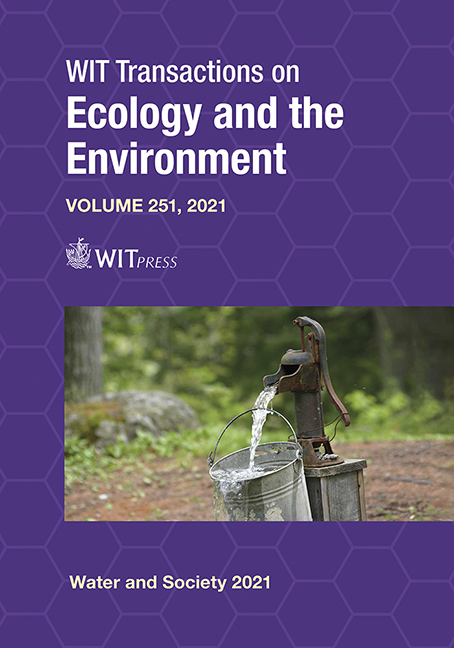DECONSTRUCTING POWER DYNAMICS AND PREVAILING DISCOURSES IN HYDROPOLITICS: THE CASE OF THE SIXAOLA RIVER BASIN
Price
Free (open access)
Transaction
Volume
251
Pages
9
Page Range
1 - 9
Published
2021
Size
260 kb
Paper DOI
10.2495/WS210011
Copyright
Author(s)
FATINE EZBAKHE, CHRISTIAN BRÉTHAUT, TANIA RODRÍGUEZ-ECHEVARRÍA, DIEGO JARA
Abstract
The Sixaola river basin, shared between Costa Rica and Panama, is generally seen as one of the basins most prone to transboundary water cooperation. In the spotlight of the international community since the 1990s, the Sixaola basin has been framed as a prime example for multi-actor, multi-level, and multisector transboundary water governance, especially with the creation of the Binational Commission for the Sixaola River Basin (CBCRS for its name in Spanish). Still, one key question remains: who (and how) is behind such conceptual framing of the Sixaola basin? In other words, what actors have succeeded in defining the social reality of the Sixaola, and how has this reality affected the water governance? By looking at the discourses’ evolution in the Sixaola basin, we aim to deconstruct the power dynamics underlining such discursive struggle. We employ Marteen Hajer’s argumentative approach to discourse analysis to identify dominant storylines, practices and discourse coalitions, emphasising the role of international organisations. With this discursive approach, we examine how the Sixaola problem’s boundaries (and ideas guiding the solutions to such problem) have changed in the past three decades. Our preliminary results show that international organisations have successfully framed the Sixaola “problematique” as local, while infusing it with a constant regional Central American perspective. Moreover, transboundary water governance has focused on sustainable economic practices to prevent biodiversity loss and land/water degradation, but with large banana companies at the margins. Finally, it remains unclear how international organisations have translated their discourses into national policies and regulations, beyond creating and strengthening the CBCRS as a platform for transboundary water cooperation.
Keywords
transboundary waters, water conflict and cooperation, discursive hydropolitics, Sixaola





